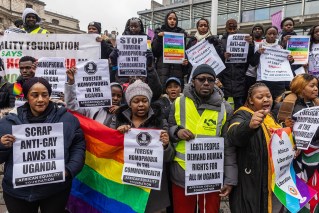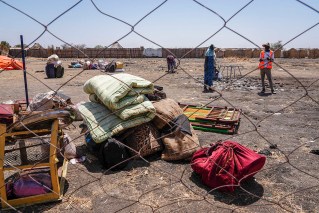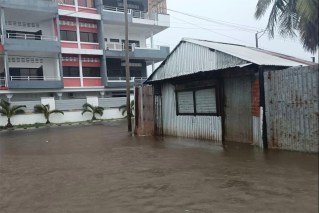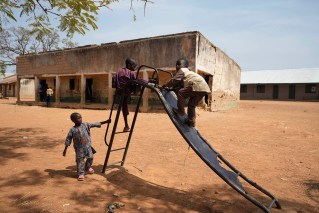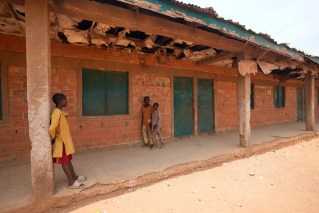Israel rejects ‘grossly distorted story’ at UN top court
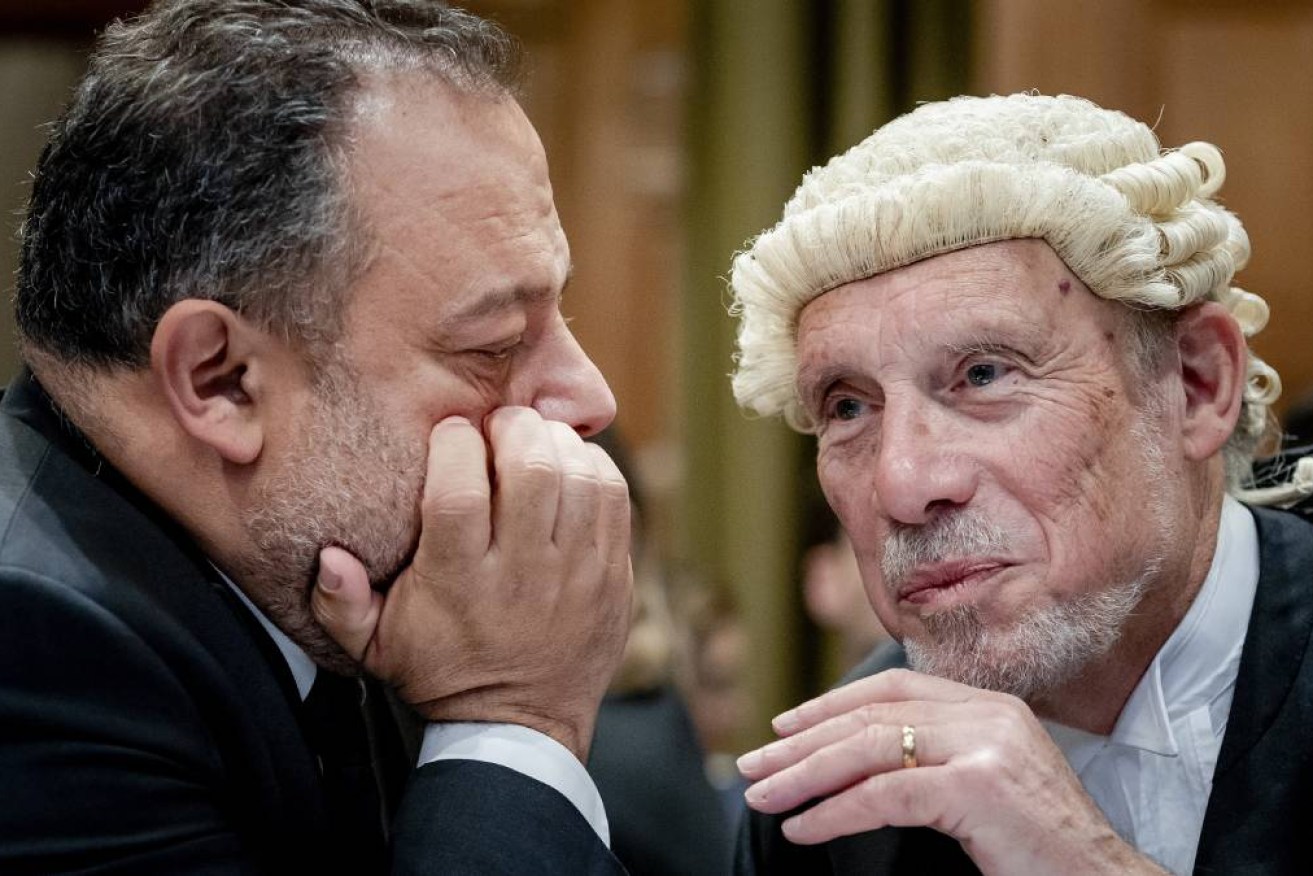
Tal Becker, Legal Counselor of Israel's Foreign Ministry, and lawyer Malcolm Shaw at the International Court of Justice (ICJ) prior to the hearing. Photo: AAP
Israel has accused South Africa of acting as a mouthpiece for Hamas at the hearing by the United Nations’ top court of a lawsuit alleging the military operation in Gaza is state-led genocide.
South Africa, which filed the lawsuit at the International Court of Justice (ICJ) in December, asked judges on Thursday to impose emergency measures ordering Israel to immediately halt the offensive.
It said Israel’s aerial and ground offensive – which has laid waste to much of the narrow coastal enclave and killed more than 23,000 people according to Gaza health authorities – aimed to bring about “the destruction of the population” of Gaza.
Israel on Friday rejected the accusations of genocide as baseless and called on the court to reject South Africa’s demands for an immediate end to its military campaign in the Gaza Strip.
“The application and request should be rejected for what they are – a libel,” Israel’s foreign ministry legal adviser Tal Becker told the ICJ.
It said South Africa was acting as a mouthpiece for Islamist Hamas, which seeks Israel’s destruction and is widely designated as a terrorist group in the West.
Israel’s military actions in Gaza were acts of self-defence against Hamas and “other terrorist organisations”, Becker said at the opening of the second day of hearings at the World Court.
He said South Africa’s interpretation of events was “grossly distorted”.
“If there were acts of genocide, they have been perpetrated against Israel,” he said.
By asking the court to order the halt of the Gaza military operation “the applicant seeks to thwart Israel’s inherent right to defend itself … and render Israel defenceless”, he said.
Israel launched its all-out war in Gaza after a cross-border rampage on October 7 by Hamas militants in which Israeli officials said 1200 people were killed, mainly civilians, and 240 taken hostage back to Gaza.
Palestinian backers with flags marched through The Hague and planned to watch proceedings on a giant screen in front of the Peace Palace.
Israeli supporters were holding a gathering of family members of hostages taken by Hamas.
The ICJ’s decisions are final and without appeal – but the court has no way to enforce them.
The 1948 Genocide Convention, enacted in the wake of the mass murder of Jews in the Nazi Holocaust, defines genocide as “acts committed with intent to destroy, in whole or in part, a national, ethnical, racial or religious group”.
Since Israeli forces launched their offensive, almost all of Gaza’s 2.3 million people have been driven from their homes at least once, causing a humanitarian catastrophe.
Post-apartheid South Africa has long advocated the Palestinian cause, a relationship forged when the African National Congress’s struggle against white-minority rule was cheered on by Yasser Arafat’s Palestine Liberation Organisation.
The court is expected to rule on possible emergency measures later in January, but will not rule at that time on the genocide allegations – those proceedings could take years.
UN deplores Israel’s refusal to grant access to Gaza
The United Nations humanitarian office says Israeli authorities are systematically denying it access to northern Gaza to deliver aid and this had significantly hindered the humanitarian operation there.
“The operations in the north have become increasingly more complicated,” said Andrea De Domenico, head of office for the UN Office for the Coordination of Humanitarian Affairs (OCHA) in the Occupied Palestinian Territories.
“We have systematic refusal from the Israeli side of our effort to get there, to access the north.”
Israeli authorities and COGAT – an Israeli Defence Ministry agency tasked with coordinating aid deliveries into Palestinian territories – did not immediately respond to requests for comment.
Israel has previously denied blocking the entry of aid.
The Israeli offensive launched in the wake of a deadly rampage by Hamas militants in southern Israel on October 7 has displaced most of Gaza’s 2.3 million population, destroyed civilian infrastructure, and caused acute shortages of food, water and medicine.
Since the start of hostilities, aid deliveries to northern Gaza have been limited, and the area was cut off altogether from external aid for weeks earlier in the conflict.
De Domenico said Israel was concerned about fuel deliveries and other supplies that could be diverted to Hamas, and had been reluctant to authorise aid deliveries to hospitals in north Gaza.
“In particular, they have been very systematic in not allowing us to support hospitals, which is something that is reaching a level of inhumanity that, for me, is beyond comprehension,” he said.
De Domenico said OCHA had not been authorised to return to Jabalia, and was allowed to bring only a very precise quantity of fuel to Al-Shifa Hospital that would last for a determined period.
—AAP



